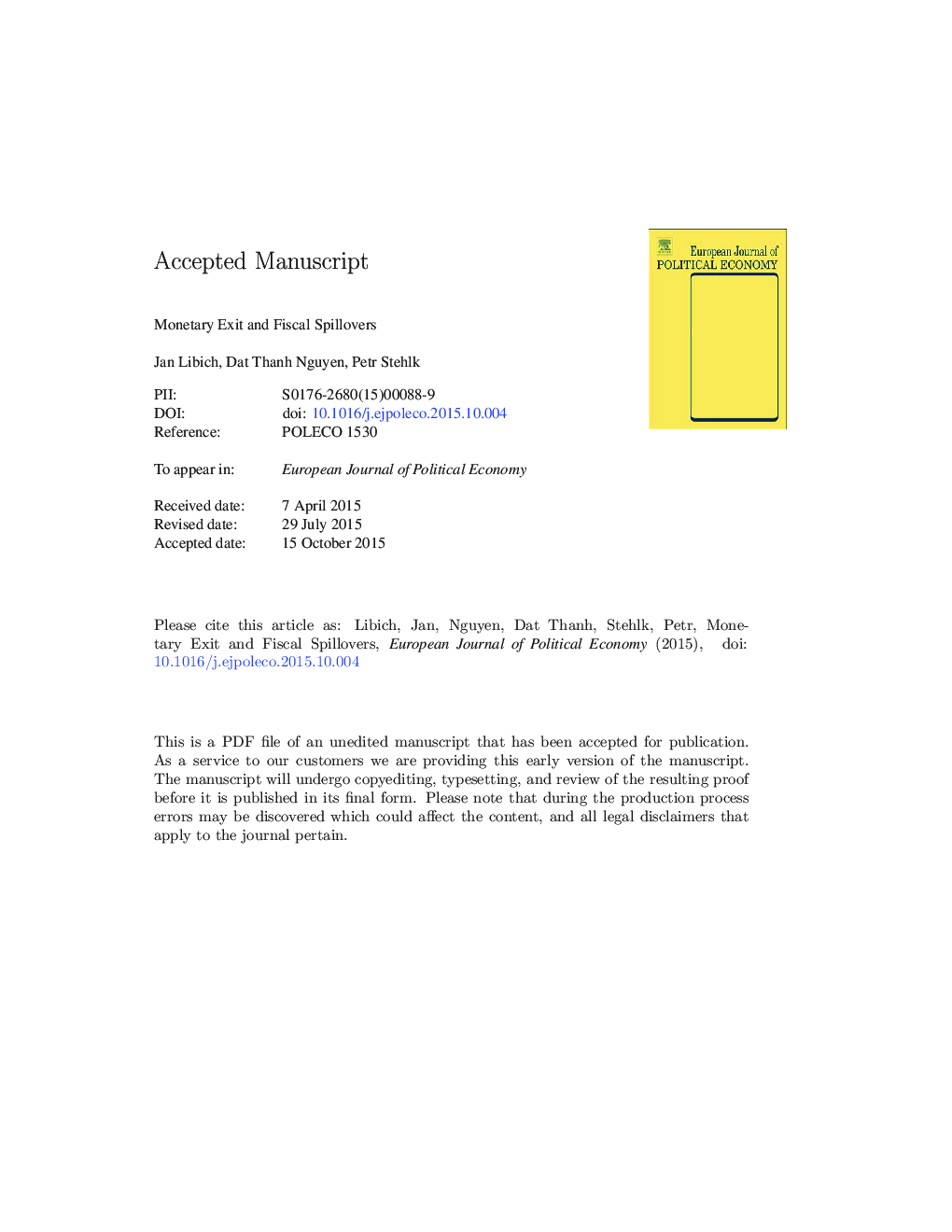| Article ID | Journal | Published Year | Pages | File Type |
|---|---|---|---|---|
| 5067918 | European Journal of Political Economy | 2015 | 37 Pages |
Abstract
The aftermath of the 2008 financial crisis has seen two types of monetary policy concerns. Some economists (e.g. Paul Krugman) worry primarily about possible deflation caused by a secular stagnation. In contrast, others (e.g. John Taylor) worry about excessively high inflation caused by quantitative easing and monetization of fiscal imbalances. The paper shows that these two seemingly contradictory threats may in fact be mutually consistent. Our analysis demonstrates that some countries may experience both - deflation in the short term and high inflation in the long term - whereas some countries are likely to experience neither. This is done in a game theoretic framework with dynamic leadership; stochastic revisions of policy actions. Such framework enables us to examine strategic monetary-fiscal interactions, the policies' institutional features, as well as uncertainty about business cycle conditions (as present during the 2010-2015 period). Our empirical section then quantifies indices of monetary and fiscal leadership for high-income countries to put them in the Monetary-dominance, Fiscal-dominance and Regime-switching regions derived in the theoretic analysis, and thus assess their deflationary/inflationary prospects. It is shown that such undesirable departures from price stability are much more likely in the United States and Japan than in Australia or New Zealand.
Related Topics
Social Sciences and Humanities
Economics, Econometrics and Finance
Economics and Econometrics
Authors
Jan Libich, Dat Thanh Nguyen, Petr StehlÃk,
